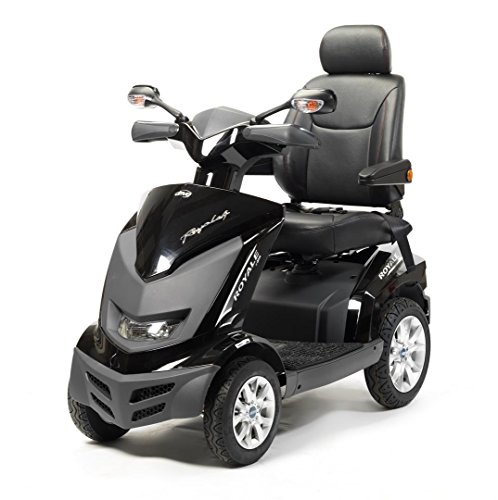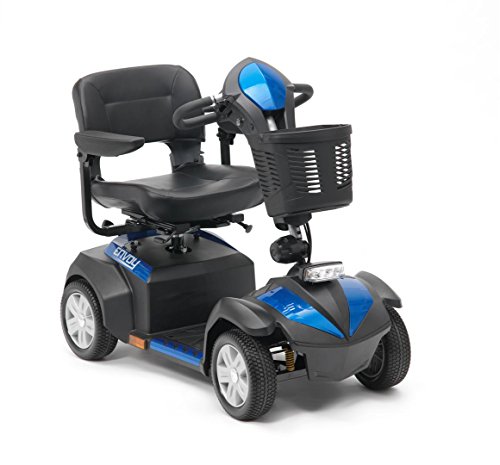10 Things That Your Family Teach You About What Is A Class 3 Mobility …
페이지 정보
작성자Precious 댓글댓글 0건 조회조회 112회 작성일 24-09-03 09:54본문
 Choosing Between a Class 2 and Class 3 Mobility Scooter
Choosing Between a Class 2 and Class 3 Mobility ScooterTake into consideration your lifestyle when choosing the right mobility device. Consider the type of terrain you'll be traveling on and the distances you will need to travel.
 A class 3 scooter is a bigger, more powerful 8mph folding mobility scooter uk device that can be driven on the road. They can travel up to 8 miles per hour and their larger batteries allow them to travel over long distances.
A class 3 scooter is a bigger, more powerful 8mph folding mobility scooter uk device that can be driven on the road. They can travel up to 8 miles per hour and their larger batteries allow them to travel over long distances.These are intended to be used outdoors.
When deciding between a class 2 or a class 3 scooter, you should consider your lifestyle, travel distances and the kind of terrain you'll be using your mobility scooter on. Class 2 scooters work best indoors and for short trips. Class 3 models can achieve speeds of up to 8mph folding mobility scooter and can be driven on the road. They can also climb hills and traverse rough terrain. Both models have crucial safety features, like a narrow turning radius and anti-tip wheels for indoor security. However, class 3 models include more road-centric safety features such as headlights and indicators to provide greater visibility.
If you are planning to use your scooter outside you must ensure that it's compliant with local laws. You don't need an official license to operate a class 3 scooter, however it is recommended to purchase insurance and pay for road tax. Certain regions might also require you to take an eyesight test or submit a doctor's certificate to demonstrate that you are able to operate the vehicle safely.
Another consideration is the amount and type of traffic that you will encounter during your travels. If you reside in a city, you may want to choose an approved class 3 scooter that is compliant with traffic regulations and capable of driving on streets. Some insurance companies offer breakdown insurance to help you get back home in the event that your scooter fails to work, or if the battery is flat. Others include third-party liability for accidents caused by owners of scooters. Talk to a doctor to assist you in making the right choice. They will know the medical history of your patient and will be capable of recommending the best model for you. You can also visit a showroom and try out different models and select the one that's right for your needs.
Priority is given to safety and comfort.
When choosing a scooter, it's crucial to consider your specific needs and how you'll use it. What kind of mobility scooter you'll need will depend on the terrain you'll travel and how far you travel. Class 2 scooters work best for indoor riding and use on pavements and class 3 scooters are mobility scooters allowed on the road better suited for longer or more arduous journeys. Whatever type of scooter you choose ensure that you follow the law and utilize safety features like taillights and headlights, indicators as well as side and rearview mirrors as well as rearview mirrors with horns.
The right scooter will ensure your safety and independence. Class 3 scooters are quicker and can cover more distance in less time. They are the best choice for long distances. Some have larger wheels and suspension systems that allow them to ride more comfortably on uneven surfaces. These scooters also come with advanced steering systems which allow for sharp angles and smooth turns.
However, determining your scooter's classification can be a challenge. It is usually done by looking at the highest speed and other features for road use like indicators, a rear-view mirror, and an horn. You can also consult the manufacturer's manual for more detailed information.
The class of your scooter can also be determined by the type of roads you'll be using it on. Class 3 scooters shouldn't be used on motorways, cycle lanes or bus lanes. However, they can be used on a variety of other roads. If you intend to drive your scooter on public roads, make sure you register it with the DVLA. Also, make sure it has an electronic device that limits its speed to four mph on road.
Additionally, it's important to keep in mind that class 3 scooters aren't permitted on public transport or used to replace a car. If you intend to ride your scooter along with someone else on the road, make sure you request permission from the appropriate authority. Be sure to follow traffic laws, and make use of your horn or light to warn other motorists.
Class 2 scooters are quicker than these.
Class 3 scooters are capable of speeds of 8 mph on the road and 4 mph on the pavement. This is double the speed of walking, giving the user more freedom to explore and do the errands. It is crucial to consider your mobility requirements and lifestyle before deciding on an appropriate class 3 scooter. It is also advised to seek advice from medical professionals who understand your medical history and assist you in finding the right scooter for your needs.
Depending on how you plan to use the scooter, you may require a scooter that can handle inclines and bumps. You might also require a scooter with a big battery to cover longer distances. It is also important to check the capacity of the weight capacity of the scooter to ensure that it can mobility scooters use the road safely support your body weight. You may also consider an electric scooter with adjustable features to make your ride more comfortable.
Certain scooters come with a suspension system that helps you drive over humps and inclines. You can also opt for a scooter with larger wheels, which will give you greater stability and smooth riding. You can even choose an option with a wider base and adjustable seat to provide greater comfort.
It is important to keep in mind that these scooters are not permitted on motorways, bus lanes or on cycle-only lanes. The scooters must be registered with DVLA, and they must be equipped with lights. In addition, it's a good idea to learn about the Highway Code. You'll also require an area to store the scooter when it is not in use.
A lot of class 2 scooters fold and easily fitted into cars. They are lightweight and can be stored in compact spaces. This makes them ideal for those who live and work in urban areas. Some scooters are able to be driven on public transport. However, it's recommended to inquire with individual train operators regarding their guidelines before utilizing a motorized scooter on trains.
If you are seeking a more flexible mobility scooter, a class 3 scooter is the best option. These models can travel much farther than their smaller counterparts and are made for use on roads. They are less difficult to drive and are able to handle sharp turns and bends.
The price is higher
A mobility scooter purchase is a major investment and you want to be sure that it's right for your needs. It's best to test out various models and talk to experts who understand your medical history so they can recommend products that are tailored to your particular requirements. It is also important to consider the frequency you use it, and where it can be stored when not in use.
Class 2 scooters are primarily designed for pavement cruising and can mobility scooters be driven on the road achieve speeds up to 4mph. They are smaller and lighter making them more maneuverable and simple to transport. They can be dismantled so that they fit in the trunk of a vehicle. They're ideal for shopping trips or short outdoor excursions.
On the other side, class 3 scooters are designed for both pavements and roads. They have the maximum speed limit of 8 mph for roads and up to 4 mph on footways. The scooters also come with rearview mirrors, indicators and a horn that can be used on the road. Class 3 scooters need to be registered with DVLA and the owner must be 14 years or older.
In the end, class 3 scooters are more expensive than models of class 2. This price difference is offset by the additional features and comfort they provide. Class 3 scooters, for example have bigger batteries and more powerful motors than class 2 scooters. Additionally, they are equipped with safety features such as armrests and headrests.
The cost of a class 3 mobility scooter will depend on the particular model and features that you select. Battery longevity, range and portability are some of the most essential features. Selecting the right scooter for your lifestyle can help you save money in the end because you'll be faced with less repairs and replacement costs. You'll also be able to travel further with a single charge, since class 3 scooters can travel as far as 30 miles on a single charge.
댓글목록
등록된 댓글이 없습니다.

